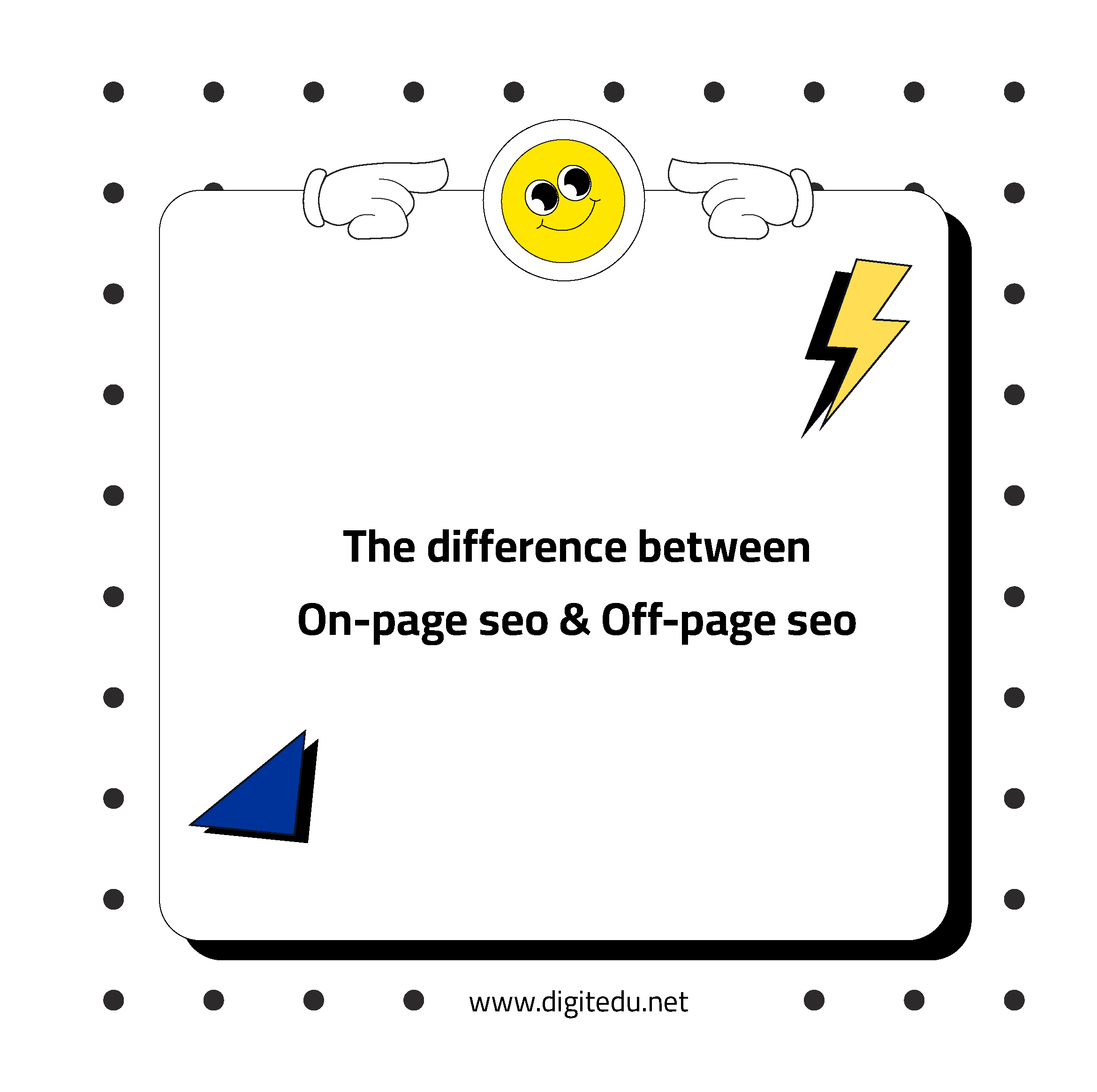The difference between On-Page SEO and Off-Page SEO is the areas that are focused on to improve the website and its ranking in search engines:
- On-Page SEO:
- It focuses on improving the content of web pages and internal elements of the site.
- Includes factors such as keywords, Title structure, technical tags, Download speed, quality content, internal link structure, And user experience.
- It is about optimizing individual pages of a website in order to increase their visibility and ranking in search results.
- Off-Page SEO:
- Focuses on factors outside a website that affect its ranking, Such as links from other sites and the relative authority of the site.
- Online publishing includes, and content marketing, and building links, and interaction on social media, And online public relations strategies.
- It aims to increase the level of trust and credibility of the website in the eyes of search engines through good links and positive interaction from users.
in general, On-Page SEO and Off-Page SEO work together to achieve the best website ranking results in search engines. They are two essential parts of an overall SEO strategy.
Here are some effective ways to improve On-Page SEO:
- Use keywords strategically:
- Start with keyword research to identify the terms your audience is searching for.
- Put keywords in headings and paragraphs. and internal links, Meta Description of the page.
- Improve content quality:
- Be excellent in providing value-added content that is useful to the reader.
- Write diverse, in-depth content that is considered a reliable source of information.
- Make sure your content analyzes problems and provides effective solutions to them.
- Improve user experience:
- Ensuring fast loading speed of website pages.
- Make the design easy to read and use on all devices.
- Providing a comfortable and simplified browsing experience for the user.
- Internal link structure:
- Use internal links to link site pages together logically.
- Choose appropriate anchor texts for internal links that reflect the content of the target page.
- Improve titles and sub-descriptions (Meta Tags):
- Be clear and concise in describing the page content in the title and page description.
- Use keywords strategically but in a natural way.
- Use technical tags correctly:
- Use technical tags to define the page’s structure and importance.
- Include technical tags e.g
For the main page title and
For sub-headings.
- Images and multimedia:
- Use visual elements appropriately and give them accurate file names and descriptions that reflect the visual content.
- Optimize Alt Tags for images:
- Use accurate and informative image descriptions using the Alt tag to improve search engines’ understanding of image content.
Applying these strategies can help improve your site’s ranking in search engine results and increase traffic and engagement.
Off-Page SEO is about building a good reputation for your website through factors that are not directly related to the site itself. Here are some effective ways to improve Off-Page SEO:
- Building external links (Backlinks):
- Strive to obtain high-quality external links from reliable and associated sites.
- Avoid unnatural or illegal links that could harm your site’s reputation.
- Social media optimization:
- Build an active presence on different social media platforms and interact with the audience.
- Publish valuable content worth sharing and spreading to attract more external links.
- Optimize your site for local search engines:
- List detailed and accurate information about your business in local directories and relevant websites.
- Check your site’s presence on Google My Business and confirm the accuracy of the information.
- Improve engagement and ratings:
- Encourage customers to provide positive ratings and reviews via sites like Google, Yelp, and others.
- Actively respond to reviews and comments to build customer trust and enhance your brand reputation.
- Shared content and promotion:
- Write valuable content and share on social media platforms and other blogs to boost your site’s visibility.
- Publish useful articles and materials that address the problems of the target audience and provide them with solutions.
- Participation in the virtual community:
- Join relevant forums and groups and actively participate in conversations.
- Make your site a source of valuable information and contributions to the community.
- Performance monitoring and follow-up:
- Use analytics tools to evaluate the performance of external links and engagement on social media platforms.
- Analyze data and identify strong and weak points to improve your strategies.
By applying these strategies, You can build a strong reputation for your website and improve its position in search engine results.


